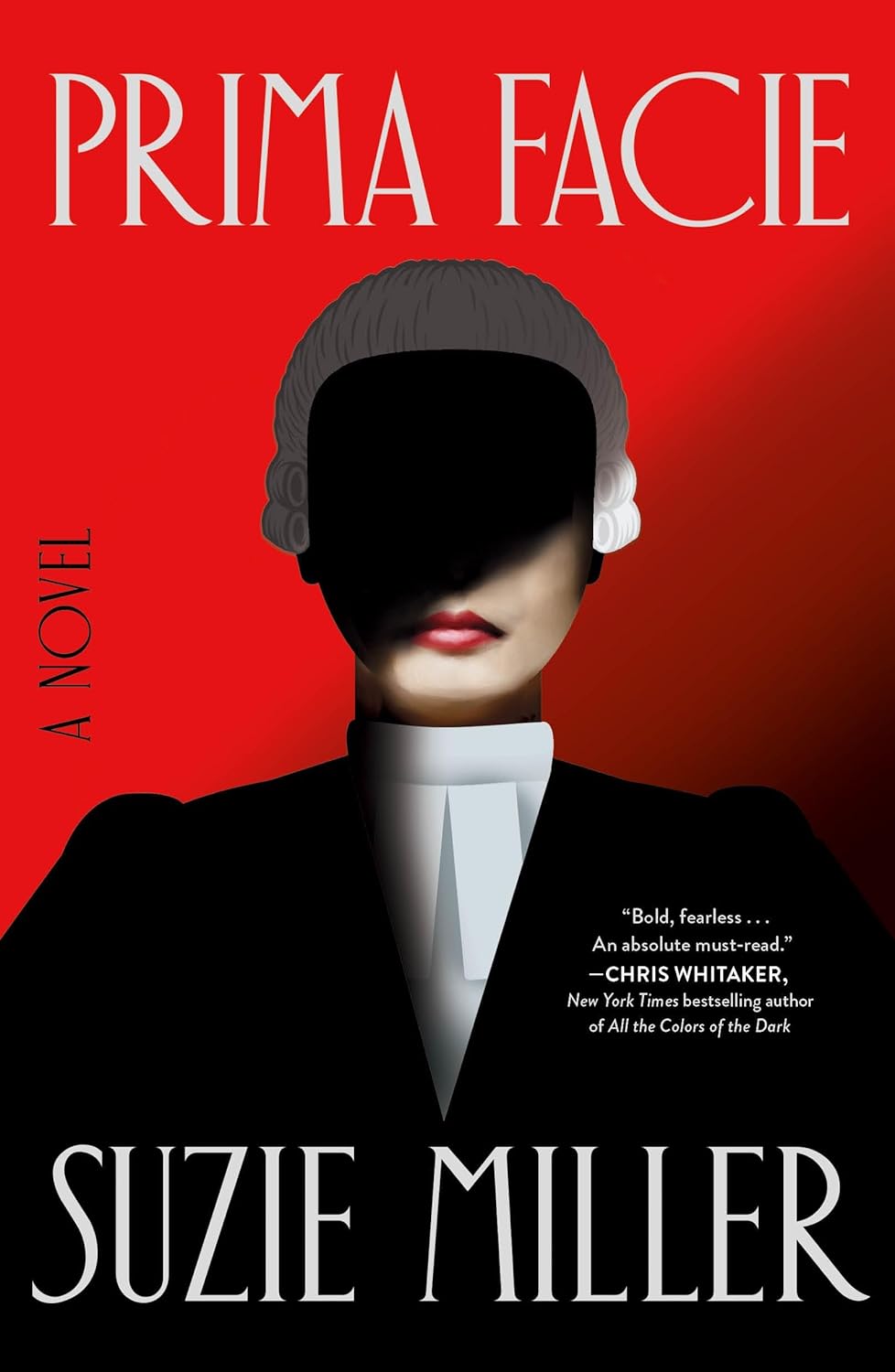Summary | Excerpt | Reading Guide | Reviews | Beyond the book | Read-Alikes | Genres & Themes | Author Bio

A Novel
by Suzie MillerTessa Ensler of Luton, England is a rising star within the barrister community. Her brilliant legal mind and skill at criminal defense litigation serve her well in high-stakes prosecutions. Most of her clients are desperate men charged with sexual assault who ask her to boldly fight for their innocence. She understands the optics and the perception of a woman defending an accused rapist. With smugness, Tessa is a lamb at first, quietly pretending empathy before unloading a barrage of questions to witnesses. Her two selves overlap. The hardcore barrister relishes their confusion and multiple inconsistencies. The Cambridge-educated woman justifies her behavior as getting to the truth. The legal victories stack up and she daydreams about what is possible if her success continues. But then she endures her own calamity, a sexual assault. Now it is Tessa who must experience the withering cross-examination she is so skilled at putting other women through.
Suzie Miller's novel Prima Facie is a reworking of her award-winning Broadway play that was also staged in the United Kingdom and Australia. I have not yet seen the play, but the novelization is an extraordinary literary experience with its marriage of internal discussion to pulsating lawyering. I must admit, it is painful to read at times, as Tessa seemingly enjoys dehumanizing victims.
The reader tours Tessa's magnificent brain as she threads a very thin needle into the horrible set of circumstances that surround a rape. She wears victims down by manipulating their accounting of events, which she knows is incomplete because of trauma. This death-by-paper-cut methodology is both effective and searing. Accusers don't see her wickedness coming. They then doubt themselves. A bundle of tears, nerves, fear, and humiliation, they will do anything to get off the stand. So Tessa is villain in the same story she is victim. Author Miller, who has worked in criminal defense, is perfectly suited to tell this tale. She once referred to Prima Facie as a rape story. I wouldn't go that far. While rape is central to the characters' motivations, it is their flaws and ego and neediness that drive the novel and make it a page-turning read.
It's easy to imagine, as you devour the chapters, how the play would be magnificent. (Jodie Comer won a Tony Award for Best Actress in the Broadway production.) But what a novel can make sense of that is limited in a dramatic depiction is the protagonist's complications. Tessa is a lonely character seeking validation. Because of emotional deprivation, she often overindulges in sex and alcohol as a substitute for meaningful intimacies. Because of her background of poverty, she often thinks she is an imposter and less than those she socializes with, mostly barristers like herself: Alice, Julian, Phoebe, and Adam. Tessa enjoys their company until her assault claim becomes public and sides are drawn. Work-friendships can be shallow arrangements. When work becomes complicated — one lawyer accusing another of rape — so do the friendships.
The novel moves between the present and past, exploring Tessa's life growing up in Luton. Her family included a violent but absent father, a mother who once covered bruises with makeup, and a hot-tempered brother who couldn't control his impulses but whom she still adores. Raised in a factory town most are stuck and die in, Tessa represents sacrifice, mobility, achievement, and academic climbing.
In law school at Cambridge, she met her friend Mia, "wearing clothes that are supposed to look worn, but I know they are brand-new. She has layers of clothing, layers of necklaces, her makeup is earthy, bloody hell her makeup is contoured." For wealthy Mia, law school was an interlude before life in the theater. She eventually left Cambridge, while Tessa sowed the seeds of a criminal defense career, which she justified, explaining:
"People are fallible and their version of a story must be tested. Even if I think I know what my client has or hasn't done, they still have the right to have their story heard before the court. The minute you start judging your client, you're fucked. You've lost your standing. The legal system is lost. You are lost."
This reminded me of something I once heard a prosecutor ask a jury. Which is worse? For a guilty man to go free or an innocent man to go to prison? I imagine Tessa Ensler would skew her answer on the side of innocence, but her agenda in the courtroom is revealing: showcase the women-are-liars trope. Her shameful treatment of sexual assault victims as their own witnesses is cruel, but after the Harvey Weinstein trial, which I followed closely, it's very familiar.
Prima Facie is a true London story, with its gaze upon the city's interdependency between solicitors and barristers. Raised with the legal system in the States, I was fascinated by England's "cab rank rules," based on the idea that cabbies must pick up passengers on demand. So then must barristers take clients. Tessa tells a colleague, "If you work in crime you don't get to pick your defendants."
The Latin phrase prima facie means at first sight. Or at first view. In legalese it means a claim can go to trial. I think the novel version of Miller's play is more the first two definitions than the third. Our first sight of Tessa Ensler is brilliance. Our first view is competence. She is enviable because of her brain. But there is more to her than is apparent at first sight. She is the somewhat arrogant litigator without a shred of empathy for victims until she becomes a victim and then demands the very thing she denied others.
Alcohol-fueled sex is a thread throughout. It advances the idea of consent as a question mark. Yet I found Tessa's story to be less about choice and more about the internal and external flaws of both humans and systems. It is a dramatic read, less a novel and more a lengthy conversation about the price women pay when they are violently abused. Its immersive story of agony and ecstasy, gods and monsters works in literary form because its soul is feministic. A rape-supportive culture and failed prosecutions greenlight the treatment of women on the witness stand. In that sense, the novelization of Prima Facie is more truth than it is fiction.
![]() This review was originally published in The BookBrowse Review in February 2024, and has been updated for the
January 2025 edition.
Click here to go to this issue.
This review was originally published in The BookBrowse Review in February 2024, and has been updated for the
January 2025 edition.
Click here to go to this issue.

If you liked Prima Facie, try these:

by Jessica Knoll
Published 2024
From the megabestselling author of Luckiest Girl Alive comes another shocking thriller inspired by the real-life sorority and target of America's first celebrity serial killer.

by Zadie Smith
Published 2024
From acclaimed and bestselling novelist Zadie Smith, a kaleidoscopic work of historical fiction set against the legal trial that divided Victorian England, about who gets to tell their story—and who gets to be believed
Your guide toexceptional books
BookBrowse seeks out and recommends the best in contemporary fiction and nonfiction—books that not only engage and entertain but also deepen our understanding of ourselves and the world around us.